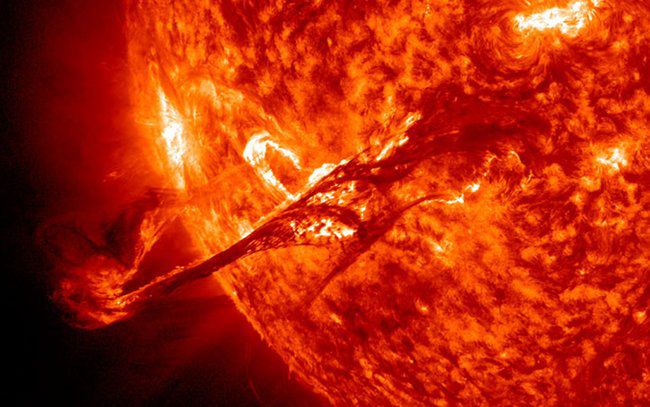Albert Einstein’s “Theory of General Relativity” might hold some truth as observed by researchers. The sun is aging and similar to anything that ages, it is losing its strength and mass. The gravitational pull of sun is coming down each passing day as stated by a team of scientists that studied the Sun and its deteriorating condition. The team consisted of experts from NASA Goddard Space Flight Center, the University of Maryland, and the Massachusetts Institute of Technology. This is resulting in the expansion of the orbits of the planets present in the solar system.
In the year 2015, NASA’s probe named MESSENGER was crashed into the planet Mercury after collecting data for a term of seven years. The data was associated with the parameter for sun’s life cycle as well as the general relativity of the planet and the Sun. The research was jotted down in the journal named “Nature”. Antonio Genova, the lead author of the study at NASA’s Goddard Space Flight Center, said that Mercury is a perfect candidate for the experiment as it is close to the sun with high sensitivity.
Einstein’s renowned theory states that huge objects with massive gravitational fields are responsible for the hold over the space-time continuum surrounding them. Mercury being the closest planet to the sun has a relatively tighter orbit. The scientists are addressing a long-left as well as an important question that is relevant in the field of fundamental as well as solar science by the use of planetary-science, explained Erwan Mazarico, a geophysicist from Goddard. The observation of these issues from different perspective provides a better numerical data while simplifying the relationship between the Sun and the Planets of our solar system.
If the warping effect as stated by Einstein affects the orbit of Mercury, we might see the planet crashing into our Earth in some billion years. With the help of radio tracking data, scientists noticed minuscule differences in the position of Mercury. However, there is nothing to worry right now as the same shall have a negligible effect on daily human life for more than a billion year.
